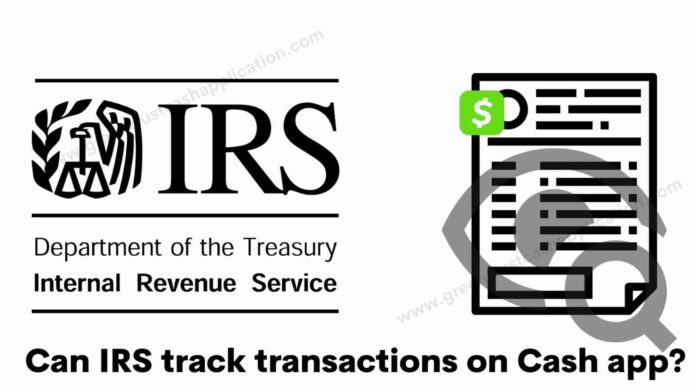Starting January 1, 2022, cash app business transactions of more than $600 will need to be reported to the IRS.
Cash apps like Venmo, Zelle, and PayPal make paying for certain expenses a breeze, but a new IRS rule will require some folks to report cash app transactions to the feds.
Who will they be looking at and why the change? It’s part of the Biden American Rescue Plan.
Chris Hobart with Hobart Wealth Management says this is a move to close the gap between the current $20,000 down to $600.
Basically, Uncle Sam wants his cut of taxable income.
So how will the IRS distinguish between business and personal transactions? People in households often split rent, mortgages, and utilities. To make things simple, they pay each other, and those apps are easy ways to shift the money around quickly.
The app will notify the IRS for business transactions and generate a 1099K form. Financial experts recommend using one app for business and one for personal, that way things will be separate and easier to control, thus diminishing your likelihood of some sort of audit, which they say is low.
If you have any further questions, the IRS’ website will lay out the timeline, as well as expectations and rules for cash app users.
OVERVIEW
With the increased use of mobile payment apps, you may wonder — how do these apps affect your taxes? Here’s what you need to know to use these tools effectively for yourself or your business.

Individuals and small businesses alike have adopted peer-to-peer (P2P) payment apps to make convenient mobile money transfers. Whether it’s splitting the restaurant bill with your friends or collecting payment for your restaurant or small business, you’ve likely been using PayPal and Venmo more than you expected to even a few years ago.
The convenience and simplicity of these payment methods have stimulated widespread adoption, but are there PayPal or Venmo taxes you should be aware of?
Using P2P platforms for business
Originally, platforms such as PayPal and Stripe were designed as online payment solutions for businesses. PayPal, as one example, gives users the option to set up both business and personal accounts. Later, Venmo (which is owned by PayPal) came on the scene, but it didn’t allow for business use initially. That changed in 2016 when Venmo began allowing some businesses to accept Venmo for payment.
Tax implications of using P2P apps
If you use one of these apps for personal use or business, here are some of the PayPal and Venmo tax considerations to keep in mind.
Reporting income
People sending money back and forth for their share of dinner don’t have to worry about reporting such payments on their tax returns. However, the moment you begin accepting business payments on a P2P platform, you’re responsible for reporting those earnings. P2P payment platforms, including PayPal, Venmo, Stripe, and others, are required to provide information to the IRS about customers who receive payments for the sale of goods and services through those platforms.
However, the threshold for reporting those payments is high. P2P platforms are required to report gross payments received for sellers who receive
- over $20,000 in gross payment volume AND
- over 200 separate payments in a calendar year.
If you cross that threshold, the platform will send Form 1099-K to you and the IRS for that year early in the following year. But, even if you don’t receive a 1099-K, you’re still required to report any taxable income you receive through these platforms on your income tax return.

Due diligence
If you receive some or even all of your business income through a P2P payment platform, it is best to set up a business account. Otherwise, your business and personal transactions will be intermingled, making it tougher to separate business and personal payments.
Keep detailed records of your total income earned from all sources during the year for accurate tax reporting. QuickBooks Self-Employed is a good option that integrates with all of the major mobile payment platforms.
If you do receive a 1099-K at year-end, you can use your accounting records to ensure the income reported to the IRS on your behalf is correct. But even if you don’t receive a 1099, the income still needs to be reported on your tax return. Tracking it outside of the P2P platform will ensure that you have the information necessary to report all of your income on the right forms.
Substantiating expenses
For any business, it’s important to keep detailed records of the costs related to the production of income. This includes any payments made through P2P platforms, as well as other business expenses — another issue P2P app users face.
For IRS purposes, using a P2P payment platform is similar to paying cash, which the IRS considers to be an unsubstantiated transaction. Business owners need to have additional documentation — such as invoices, receipts, or expense reports — to support the business purpose of payments made through a P2P platform.
For example, a business might pay its janitorial crew through Venmo for legitimate office cleaning expenses. But for IRS purposes, a Venmo time-stamped transaction alone does not supply sufficient information to substantiate a business expense.
- If you pay business expenses with Venmo, PayPal, or another P2P platform, make sure you have an invoice from your contractor or get a receipt from the vendor.
- This documentation should include the amount paid and a description of the business expense.
- This will ensure that you have the right backup information for your deductions if the IRS ever questions the legitimacy of your expense.
Keep in mind, as a business owner, any payments made to you through a P2P app are still subject to IRS Form 1099 reporting rules and will need to be properly accounted for. From the IRS’s perspective, business income collected through a P2P app is no different from any other transaction that goes through a traditional bank account. Businesses are still required to report any payments received through Venmo and PayPal as taxable income when filing taxes.
If you use PayPal, Venmo, or other P2P platforms for business, save time with effortless expense tracking year-round with QuickBooks Self-Employed which can easily import expenses into TurboTax Self-Employed during tax time.
Don’t worry about knowing which tax forms to fill out when you are self-employed, TurboTax Self-Employed will ask you simple questions about you and your business and give you the business deductions you deserve based on your answers. TurboTax Self-Employed uncovers industry-specific deductions. Some you may not even be aware of.





